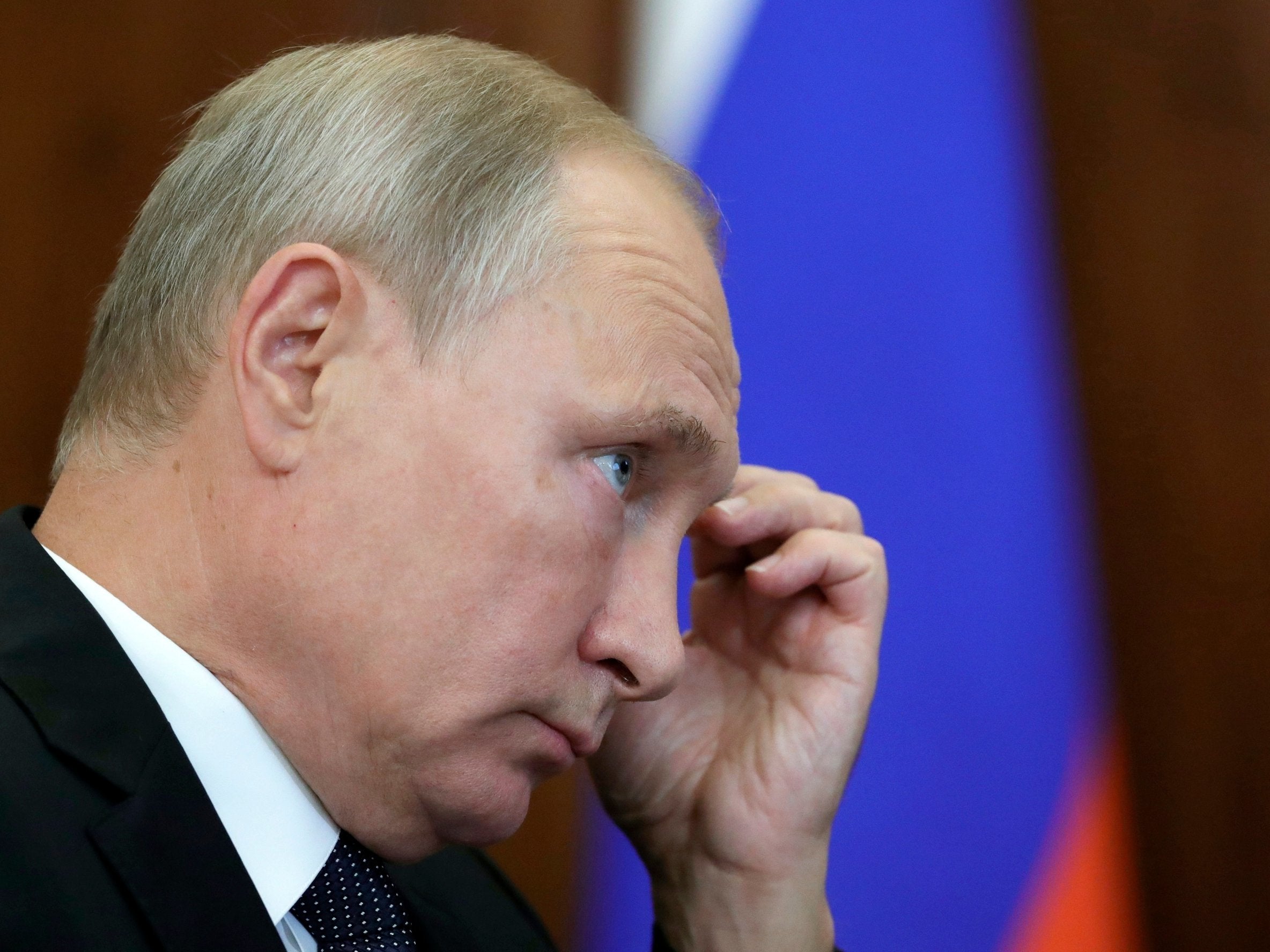'They committed political suicide today' – Kremlin problems grow as Russian pension reform passes second reading
Parliament adopted the controversial legislation in its second reading, with deputies voting 326-59. It is expected to be rubber stamped in third reading tomorrow

Your support helps us to tell the story
From reproductive rights to climate change to Big Tech, The Independent is on the ground when the story is developing. Whether it's investigating the financials of Elon Musk's pro-Trump PAC or producing our latest documentary, 'The A Word', which shines a light on the American women fighting for reproductive rights, we know how important it is to parse out the facts from the messaging.
At such a critical moment in US history, we need reporters on the ground. Your donation allows us to keep sending journalists to speak to both sides of the story.
The Independent is trusted by Americans across the entire political spectrum. And unlike many other quality news outlets, we choose not to lock Americans out of our reporting and analysis with paywalls. We believe quality journalism should be available to everyone, paid for by those who can afford it.
Your support makes all the difference.Posters on the streets outside described the plans to raise the pension age as “genocide”. Inside parliament, barrel-chested communist deputies wore white T-shirts claiming their implacable opposition to the reform. And ordinary Russians had shown their disapproval, with a million of them putting their signatures to a petition.
In the end, the vote to pass the Kremlin’s contentious pension bill in its second reading went without so much as a whimper.
The tightly controlled State Duma removed the last significant legislative hurdle by 326 to 59, with a proforma third reading scheduled for Thursday. Few will be on the edge of their seats by the time the Federation Council and the president are asked to add their seal of approval next Wednesday.
Wednesday’s vote followed party lines. The ruling United Russia party voted for; the token opposition voted against. And when it came down to the presidential amendments, everyone was in favour. They were for the president, one deputy argued, but against his reform.
“There is something we can all agree on,” the speaker Vyacheslav Volodin said once the unanimous vote passed.
Following the amendments, the pension age will eventually rise by five years, to 65 for men and 60 for women. Rarely has a government policy provoked such rage among Russians.
Opinion polls suggest eight out of 10 Russians are against the bill, and over half are ready to join protests. Opponents of the bill say it strikes at the heart of the country’s social contract. In some regions, the proposals take the male pension age beyond the male life expectancy.
After the government first presented its plans in the summer, the ratings of both president and ruling United Russia party nosedived by 20 per cent. Performance in regional elections this month was also dire, with voters rejecting hand-picked candidates across the country. In a sign of the Kremlin’s nervousness, opposition leader Alexei Navalny was twice arrested ahead of protests.
Authorities initially tried to keep the president above the fray. It was a matter for government, not the president, spokesperson Dmitry Peskov would tell journalists. But, eventually, Vladimir Putin was forced to intervene. On 29 August, he made a TV address to the nation, calling for a moderate softening of the bill but describing it as necessary medicine.
The Kremlin understood it would take a hit, said Tatyana Stanovaya, founder and CEO of the political analysis firm R.Politik, but it might have overestimated its reserves. And its tactics have contributed to a sense of the president being detached from his people.
“There is still a huge problem of dialogue,” she told The Independent. “People are expressing anger at three things. First, they see international politics being handled with far greater urgency than internal economic problems. Second, they don’t see any positive agenda, only warnings that if you don’t support them, things will get worse. And third, they recoil at the language of ultimatum, the absence of discussion.”
Sergei Kurginyan, head of the neo-Marxist movement that organised the million-strong referendum against the bill, said he was disappointed, but not surprised, by the outcome.
“Of course we didn’t like the way that the deputies voted, but they are absurdly dependent and act like children around a father,” he told The Independent. “They committed political suicide today, but they voted for that suicide because they are nothing without the president.”
Mr Kurginyan said the vote would have broad consequences for the “political stability” of the country. There was a danger of late-Soviet collapse, he said: “There is already a slow, creeping process of disillusionment, but it will become more pronounced.”
According to Ms Stanovaya, the Kremlin plans to manage the growing public discontent by renewing the regional elite with new faces. By evening, the president had already moved to replace two governors. But this “corporate” approach did nothing to solve the fundamental problems of “distrust in the system and in a president who has lost his magic wand”.
Sooner or later, the Kremlin will be left with a choice, she said.
“They can either turn the screws further and risk creating a pressure-cooker environment. Or they can introduce moderate liberalisation, and risk things getting out of control.”
Join our commenting forum
Join thought-provoking conversations, follow other Independent readers and see their replies
Comments